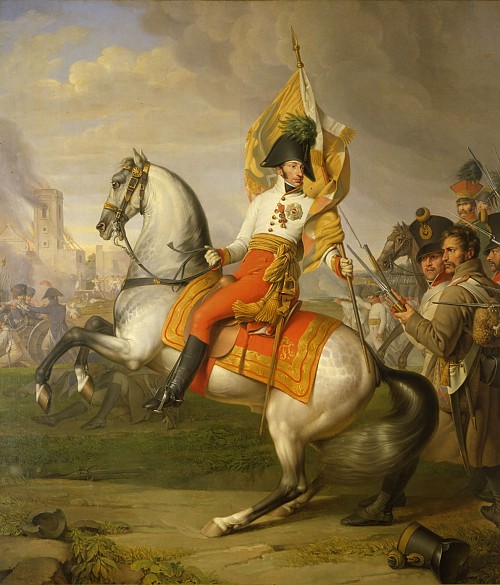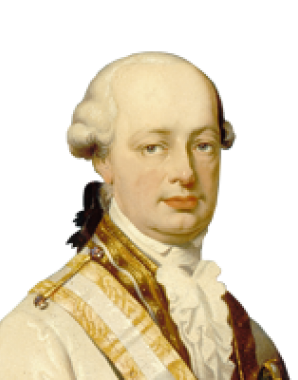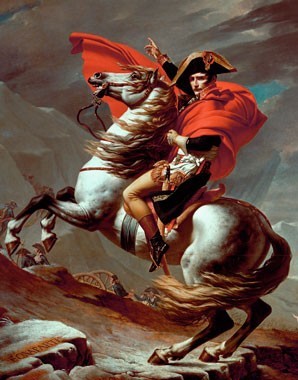Archduke Karl: A rival to his imperial brother
Archduke Karl is regarded as one of the greatest military talents ever produced by the dynasty. However, he was hardly allowed to develop his gifts, as his elder brother, Emperor Franz II (I), jealously saw to it that the popular archduke was never allowed to forget his subordinate place in the family pecking order.
Archduke Karl Ludwig was born in Florence on 5 September 1771. He was the fifth of the sixteen children born to the prolific union of Archduke Peter Leopold, Grand Duke of Tuscany (later Emperor Leopold II) and Maria Luisa of Naples and Sicily from the Bourbon dynasty.
As a child, Karl did not stand out in any way. He was initially destined for a career in the Church, as he was not thought robust enough to become an officer. Shy and delicate, Karl was just another child among the massed ranks of his brothers and sisters.
A turning point came in the young archduke’s life when his aunt, Marie Christine, began to take an interest in him. A daughter of Maria Theresa, she was married to Albert of Saxony-Teschen, but the marriage had remained childless. Residing in Brussels as Stadholder (governors) of the Austrian Netherlands, the couple took Karl in, concentrating all their efforts on the boy’s upbringing and education, from which he benefited enormously. Karl was eventually adopted by his foster parents and thus stood to inherit their immense fortune.
Karl showed an early enthusiasm for the military life, despite seeming physically unsuited to it. He suffered from epilepsy all his life, and is even said to have had a seizure during the battle of Aspern.
When the war between revolutionary France and Austria began, the archduke, having been promoted to the rank of major general in 1793, was for the first time confronted with the reality of the battlefield. He showed talent and was subsequently entrusted by his brother, Emperor Franz, with the command of the Austrian forces in the southern German theatre of war, where he distinguished himself with his tactical skills.
Franz took advantage of having a member of the dynasty with military talent in order to strengthen dynastic ideals within the army. In 1796 Karl was promoted to the rank of Reichsfeldmarschall (Imperial Field Marshal). He was to be the last bearer of this bombastic title before the Holy Roman Empire vanished from the map.
However, Karl’s ambitious plans were confounded by the rapid advance of French troops in Italy under the command of the young Napoleon. During this time of crisis, Karl came into conflict with his brother the emperor for the first time. Franz would not allow any criticism or interference, demanding absolute subjection to his will from members of the family. The difficult relationship between the brothers is reflected in Karl’s career: he was repeatedly entrusted by his brother with military command, only to have it taken away from him again.
It was not until 1801, when Austrian military power was on the brink of disaster following a series of defeats, that Karl was able to prevail with his demands for thorough reform of the army. He was promoted to field marshal and appointed president of the Imperial War Council. His position as War and Navy Minister gave him a free hand, and he rose to become the most senior decision-maker in military matters. However, he was prevented from implementing his measures by developments in the war. Considering the military capability of the army to be insufficient and warning against declaring war again, he was once again removed from his post by his brother the emperor in 1804.
Shunted to the sidelines, he witnessed the annihilating defeat inflicted on Austria at the Battle of Austerlitz in 1805, in the wake of which Napoleon advanced to the gates of Vienna and was able to dictate the terms of the peace of Pressburg, which were disadvantageous to Austria. Napoleon, who recognised Karl’s talent, is even said to have offered him the Austrian throne, an offer that the archduke refused, however, out of deference to his unloved brother.
In view of the catastrophic state of the army, Karl was once again appointed senior decision-maker in military matters. When a new war against Napoleon proved inevitable, Karl’s reforms were put the test. Under his command Austrian troops won the Battle of Aspern near Vienna, in May 1809, but at the subsequent Battle of Wagram hopes were doused once again. Nevertheless, the victory at Aspern was of historic importance, since it was the first time that Napoleon had been defeated in pitched battle. Karl was to enter the annals of posterity as the ‘Victor of Aspern’.
In the eyes of Emperor Franz, Karl had acted too much on his own authority in the subsequent ceasefire negotiations, and the archduke was never again entrusted with a position of command in the army. However, he continued to concern himself with military questions and wrote a number of pioneering treatises on various aspects of military administration and strategy.
















